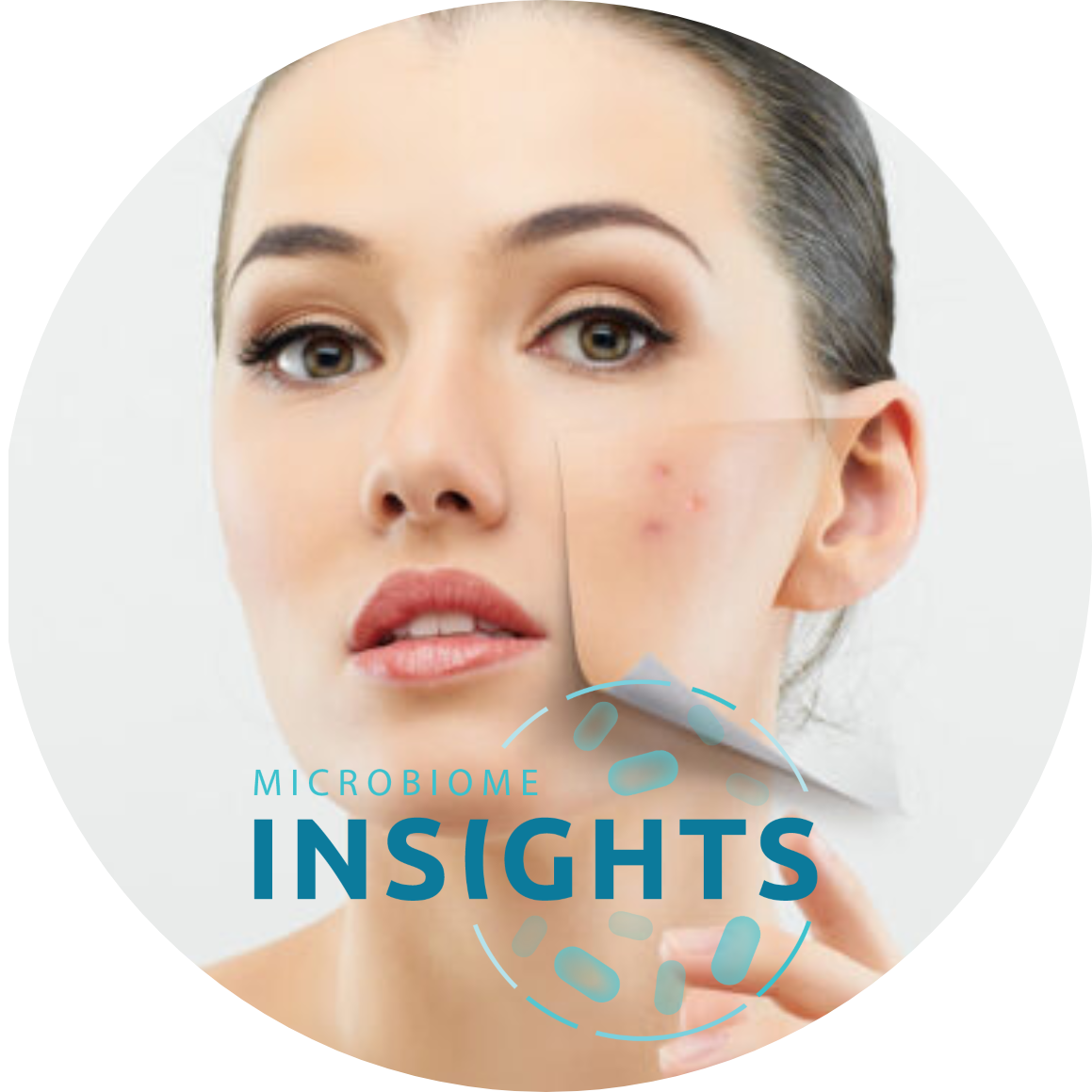The link between gut and skin health

If you have skin rashes or eczematous symptoms, you should never think it is a genetic condition.
If you have long-term, chronic symptoms, you should not only see a dermatologist or switch to natural cosmetics but also remember that digestive problems and internal parasites could be behind the external symptoms.
In nutritional studies, the skin has long been considered an indicator of intestinal issues and an imbalance of intestinal flora.
To have clear, healthy skin, you should first regenerate your gut.
Epidemiological studies show a clear link between intestinal problems and skin diseases.
When skin problems do not respond properly to skin care treatments, the source of the problem is actually in the gut. A poorly functioning gut system can potentially exacerbate or lead to pre-existing skin conditions. Acne, rosacea, and perioral dermatitis are ten times more likely to occur with small intestinal bacterial infections (SIBO). Skin rashes occur in 14% of patients with ulcerative colitis and 24% with Crohn’s disease. Mucosal lesions, alopecia, and vitiligo are also more common in gluten sensitivity. Skin problems and acne may occur due to increased intestinal permeability (leaky gut) in inflammatory bowel disease.
Studies have shown that intestinal inflammation and dysbiosis can impair the skin’s protective function. This condition, in turn, leads to a decrease in the number of antimicrobial peptides produced in the skin and may increase the severity of certain infections as part of the skin’s inflammatory response
The intestinal flora influences the health of the skin
The condition of the intestinal flora affects the health of the skin. The so-called neuropeptide substance P is produced in the intestine, brain, and skin and plays an essential role in the condition of the skin. An altered gut microbiome releases higher neuropeptide P levels in the gut and the skin. Higher levels of neuropeptide P affect lipid production and fatty acid profiles in tissues and can influence sebum production and fatty acid composition of sebum. Several studies have already demonstrated the positive effects of probiotics on the skin.

Gut-skin axis
“The GSA describes the relationship where the gut can influence skin health owing to its immunological and metabolic properties.52 Although it is difficult to strictly attribute a cause-and-effect relationship between the gut microbiome and dermatologic conditions, multiple studies support a connection between them with several cutaneous diseases being associated with GI disorders and vice versa.”(1)
Several studies have already demonstrated the beneficial effects of probiotics on the skin. Fermented dairy products have a positive effect on intestinal flora, while unfermented dairy products can promote acne breakouts. However, be careful with fermented products if you suffer from SIBO. Oral probiotics reduce inflammation and systemic oxidative stress markers, which are locally elevated in acne. However, if you do not know anything about your microbiome, it is recommended to take only high-quality soil-based probiotics.
“Gut microbiota influence the pathophysiology of acne via cross-talk between intestinal commensal bacteria and the mTOR pathway (Noureldein and Eid, 2018)” (2)
A well-balanced, nutrient-rich diet is critical to maintaining a healthy gut. If you do not have any particular intestinal problems, you can take probiotic supplements to increase the versatility of your intestinal flora.
Quercetin, a powerful antioxidant, and a miracle molecule can still be beneficial. Since I have been taking Quercetin regularly, I have not had a single pimple, although I am sure that my intestinal flora is not 100% perfect.
What can you do to improve your digestion and skin?
- Avoid dairy, soy, gluten, and rapidly absorbable carbohydrates for at least 1-2 months.
- Take probiotics daily. Preferably something that has been studied and proven to be effective. If you have intestinal problems, take only soil-based probiotics.
- In the case of digestive problems, take regular “digestive enzymes ” to help your digestion, which will relieve your heavy stomach immediately after a large meal. If you do not take a digestive supplement, incorporate apple cider vinegar into your daily routine, preferably the unfiltered variety. After a meal, a tablespoon will help digest the food. It is important to support digestion with natural supplements when altered intestinal flora and impaired digestion slow down the digestion of food because, in this case, there is stagnation in the small intestine, which causes many unpleasant symptoms and inflammation.
- Move around whenever you can!
- I am thinking of something other than going to the gym every day. However, you should walk as much as possible if you do not have time to exercise. Introduce a 15-minute workout at a faster pace 3x per week to work your muscles and speed up your metabolism.
- Take evening primrose oil, as its gamma-linolenic acid content reduces the symptoms of eczema, and take omega-3 capsules (1000 mg ) 2-3 times a day to reduce inflammatory processes.
Stick to the above for at least 2-3 months, and follow a diet high in fiber, and you will surely see the change!
Resources
[1]
https://www.sciencedirect.com/science/article/abs/pii/S0738081X21001930
[2]
https://www.ncbi.nlm.nih.gov/pmc/articles/PMC6048199/
[3]
https://www.ncbi.nlm.nih.gov/pmc/articles/PMC7916842/
[4]
https://www.dermatologytimes.com/view/gut-bacteria-linked-to-inflammatory-skin-disease
[5]
https://pubmed.ncbi.nlm.nih.gov/33924414/
[6]
[7]
https://pubmed.ncbi.nlm.nih.gov/27554239/
[8]
https://pubmed.ncbi.nlm.nih.gov/33921772/
[9]
https://pubmed.ncbi.nlm.nih.gov/33540138/
[10]
https://www.eurekalert.org/news-releases/903431
[11]
Demirel Ogut N. Link Between the Gut and Inflammatory Skin Disease Exposed. Accessed May 11, 2021. Published online May 7, 2021. https://www.eurekalert.org/pub_releases/2021-05/sc-tro050621.php
[12]
Stocum, Linda. “Gut Bacteria Linked to Inflammatory Skin Disease.” https://www.dermatologytimes.com/, 11 May 2021, www.dermatologytimes.com/view/gut-bacteria-linked-to-inflammatory-skin-disease.
[13]
Juhl, Christian R, et al. “Dairy Intake and Acne Vulgaris: A Systematic Review and Meta Analysis of 78,529 Children, Adolescents, and Young Adults.” Nutrients, U.S. National Library of Medicine, 9 Aug. 2018, https://www.ncbi.nlm.nih.gov/pmc/articles/PMC6115795/.
[14]
Sanz, Yolanda. “Effects of a Gluten-Free Diet on Gut Microbiota and Immune Function in Healthy Adult Humans.” Gut Microbes, U.S. National Library of Medicine, 2010, https://www.ncbi.nlm.nih.gov/pmc/articles/PMC3023594/.
[15]
Acne Vulgaris – Statpearls – NCBI Bookshelf. https://www.ncbi.nlm.nih.gov/books/NBK459173/.
[16]
Demirel Ogut N. Link Between the Gut and Inflammatory Skin Disease Exposed. Accessed May 11, 2021. Published online May 7, 2021. https://www.eurekalert.org/pub_releases/2021-05/sc-tro050621.php
[17]
Stocum, Linda. “Gut Bacteria Linked to Inflammatory Skin Disease.” https://www.dermatologytimes.com/, 11 May 2021, www.dermatologytimes.com/view/gut-bacteria-linked-to-inflammatory-skin-disease.
[18]
Juhl, Christian R, et al. “Dairy Intake and Acne Vulgaris: A Systematic Review and Meta Analysis of 78,529 Children, Adolescents, and Young Adults.” Nutrients, U.S. National Library of Medicine, 9 Aug. 2018, https://www.ncbi.nlm.nih.gov/pmc/articles/PMC6115795/.
[19]
Sanz, Yolanda. “Effects of a Gluten-Free Diet on Gut Microbiota and Immune Function in Healthy Adult Humans.” Gut Microbes, U.S. National Library of Medicine, 2010, https://www.ncbi.nlm.nih.gov/pmc/articles/PMC3023594/.


